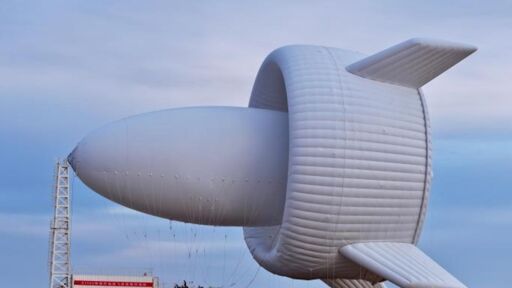- cross-posted to:
- [email protected]
- cross-posted to:
- [email protected]
"High-altitude winds between 1,640 and 3,281 feet (500 and 10,000 meters) above the ground are stronger and steadier than surface winds. These winds are abundant, widely available, and carbon-free.
"The physics of wind power makes this resource extremely valuable. “When wind speed doubles, the energy it carries increases eightfold, triple the speed, and you have 27 times the energy,” explained Gong Zeqi "



With a traditional wind turbine, if the wind speeds get too high, the turbine locks the rotation and feathers the blades. For the airship however, people will have to manually take it down and later erect it again. Hopefully they get to it in time, otherwise it’s going to violently take itself down and/or fly off. Either way, that is a bunch of extra cost incurred on a regular basis.
Strikes me as an impractical solution.
A wind turbine automatically feathers. Why can’t the airship automatically raise and lower itself?
With modern forecasting, getting it’s height right shouldn’t be too hard?
It doesn’t just need to be lowered, that would leave it exposed still. It needs to deflated/reinflated every storm, while also having someone strap the carefully folded deflated bits down, or put itself into a very expensive massive hangar every storm. Are these possible, yes, but again, it needs to be economical, not just possible.
Weather has always been a severe issue with airships. It’s the main reason you don’t see them filling the sky.
Does the article actually list the target altitude for this version?
I think I was imagining something much higher. You’re probably right.
Article says wind speeds are môre steady up there, wouldn’t that mean whatever you put up there is build to withstand those winds?